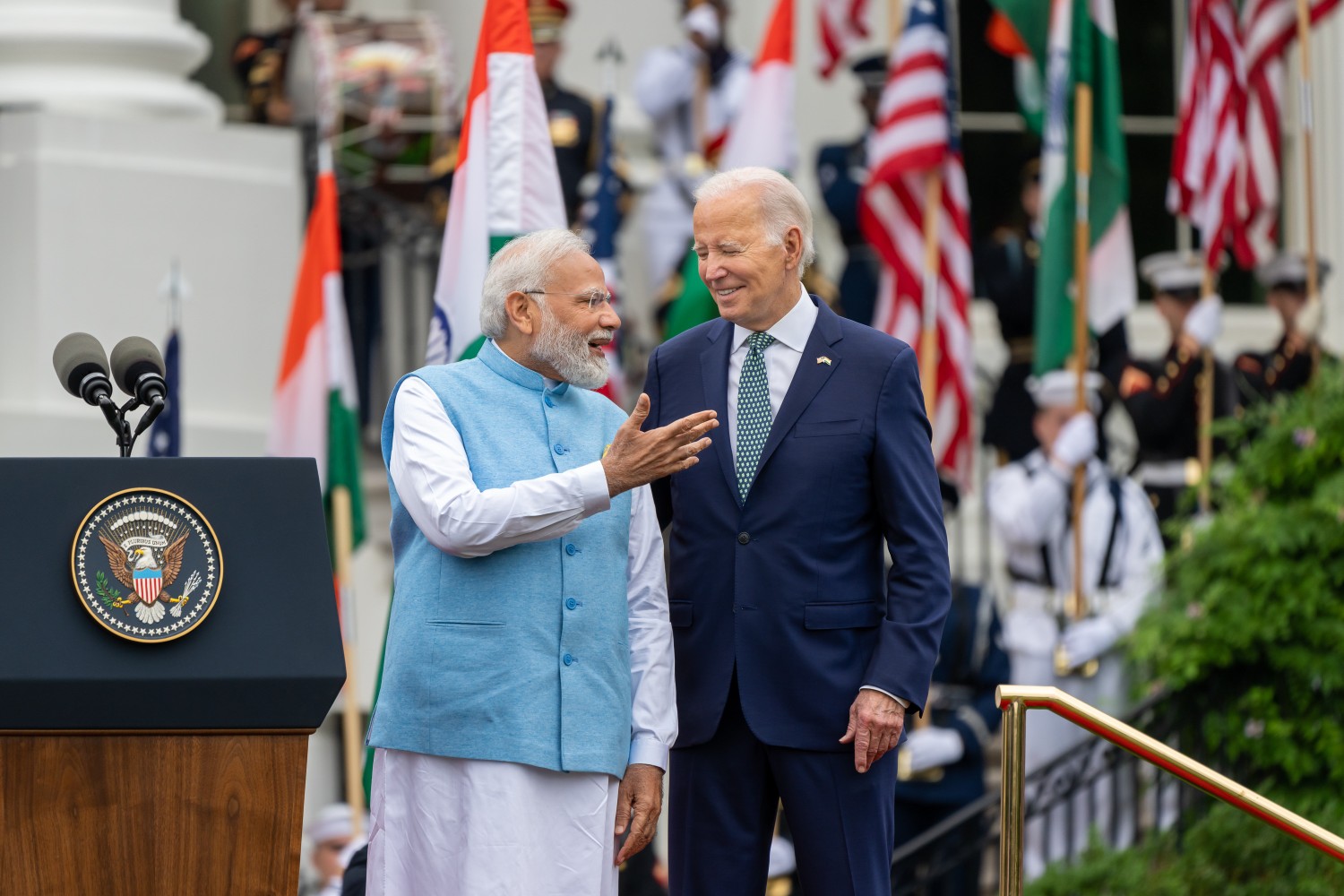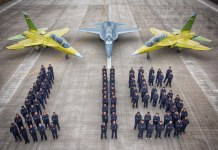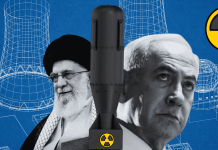A prolonged period of inactivity by the four members of QUAD (Australia, India, Japan, and the United States) in the Indo-Pacific has led to a pessimistic prediction in certain quarters that it may go the way of SEATO—“a paper tiger” that lasted from 1954 until its inglorious end in 1977.
Among the reasons why much is not happening in the QUAD are said to be increasing differences between India and the United States over issues that have more to do with the domestic issues in the two countries in an election year than the geopolitical ones that had led to the formation of the group and remain as relevant as before.
Of course, it is now said that with national elections in India having been concluded and Prime Minister Narendra Modi getting a renewed mandate, though with a much lesser majority, the worst is over, and things are expected to improve.
In his first foreign visit after taking the oath as Prime Minister for the third consecutive time, Modi is all set to fly to Italy to attend the G-7 summit, starting on June 13, as a special invitee by the host, Italian Prime Minister Giorgia Meloni. There, he is expected to meet QUAD partners -U.S. President Joe Biden and Japanese Prime Minister Fumio Kishida.
Despite Washington and New Delhi routinely highlighting the immense potential and brilliant future of the Indo-US partnership, their relationship has been beset with many frictions.
Most of such instances flow from the growing perception, well nurtured by the liberal establishment in the U.S., that India under Modi has been transformed into an illiberal democracy. So much so that “Freedom House,” a Washington-based organization that champions the causes of democracy and human rights, has downgraded India’s score from “free” to “partly free,” citing “rising violence and discriminatory policies affecting the Muslim population.”
Freedom House says that Modi’s government engages in the “harassment of journalists, nongovernmental organizations (NGOs), and other government critics” and that “the BJP ( Modi’s ruling party) has increasingly used government institutions to target political opponents.
What is worse is that the State Department under Biden seems to have seen merits in such anti-Modi government perceptions. For the last two years, the U.S. Commission on International Religious Freedom (USCIRF), affiliated with the U.S. State Department, has recommended that India be designated a country of “particular concern.”
In fact, the State Department did not even consider it diplomatically inappropriate when India was in the midst of elections to say that it is “observing” the arrest of Delhi chief minister Arvind Kejriwal by the Enforcement Directorate and the income-tax notices issued to the Congress Party.
Understandably, India protested these remarks as interference in its internal affairs and summoned senior officials of the US embassy in Delhi to convey its protests.
Incidentally, many in India’s strategic establishment strongly believe that Western countries in general and the U.S. in particular have directly or indirectly interfered in India’s just-concluded elections like never before. Western media think tanks, academic circles, and human rights organizations were encouraged to lead a systematic attack on the Modi government and appeal to Indian voters to reject Modi electorally.
As Kanwal Sibal, one of India’s foremost diplomats, who was the Foreign Secretary, has pointed out, “The intensity of these attacks increased prior to this year’s election. The New York Times, the Washington Post, the Economist, the Financial Times, Le Monde, Deutsche Welle, the Wall Street Journal, France 24, the BBC, and the journal Foreign Affairs have led a manifestly orchestrated campaign against Modi’s re-election. Attacks have come from the US International Commission of Religious Freedoms, V-Dem of Sweden, the Open Society Foundation of George Soros, the Human Rights and Religious Freedom reports of the US State Department, etc. Individual US Congressmen have joined the chorus, too”.
In fact, Sibal does not find it a matter of simple coincidence when he says that “the substance of these attacks has been identical with that of the principal Indian opposition party’s criticism of Modi personally and of his government.” The opposition party here is the Congress, and the identical attacker has been Congress leader Rahul Gandhi.
Besides, a new line of attack on India has been opened up with the allegations that India is encouraging/committing extrajudicial killings in the United States (and Canada) of Sikh separatists belonging to the Khalistan movement. American prosecutors, fully backed by the Biden regime, have alleged that an unnamed Indian government official hired a hit-man to kill the leader of the organization Sikhs for Justice, Gurpatwant Singh Pannun, whom India considers a terrorist.
The American point, like that of Canada, is that these attempts were made on American soil, and the target was one of its citizens.
But there are merits when Indian officials say that not only are these charges unproven, but these are also examples of sheer double standard on the part of the U.S. as it protects persons who openly work for the disintegration of India, a leading American partner, and fellow democracy. After all, the U.S. has an egregious history of assassinating its opponents and enemies on foreign soil.
Even otherwise, many strategic observers think that now the American establishment is resisting the Modi government’s belief in India maintaining its strategic autonomy, not taking sides in the ongoing Ukraine war, maintaining close ties with Russia by defying American sanctions, and taking a position on global climate policies that are in sharp variance with that of Washington, particularly over proposed emissions trajectories.
Impact on QUAD
It is said that all these developments seem to have some effect on the QUAD. All told the annual QUAD summit that President Biden initiated in 2021 has not been held over the last two years. Biden hosted the first in-person leaders’ meeting of the QUAD at the White House in 2021, and Japanese Prime Minister Fumio Kishida hosted the second summit in May 2022.
The 2023 Quad meeting was supposed to be held in Australia in May, but because of some important domestic developments, Biden had to cancel his trip. However, the summit was still held, though on the sidelines of the G7 summit in Hiroshima.
This year, India was supposed to host it in January, and the Modi government was seriously considering it immediately after the country’s Republic Day celebrations on January 26. But it had to be postponed as President Biden was unwilling to visit at that time.
Washington had said that the summit would be rescheduled in India later this year, but it seems highly unlikely, at least before the US Presidential elections in November.
According to Ian Hall, an expert on Indian politics at the Griffith University of Australia, there is now a growing skepticism about the QUAD among foreign policy elites in both New Delhi and Washington. Other commentators may contest this, but critics of the QUAD have now found a great opportunity to say that being an unnatural organization, it would wither away like SEATO.

It may be noted that SEATO (South East Association Treaty Organization) was established at the behest of the U.S. in 1954 to contain the communist influence in South East Asia, but the Philippines and Thailand were the only South East Asian countries to join. Pakistan was the other Asian country as a member country. The result was that SEATO was dominated by “outsiders”- the U.S., U.K., France, New Zealand, and Australia.
Critics “find” QUAD to have many of the features of the failed SEATO. Because it does not contain significant Southeast Asian countries, there is a divergence in the outlooks of the U.S. and India that refuses to be an American “vassal.”
But then the above may be an argument that is a little over fetched. All four QUAD partners believe strongly in the principles of “a free and open Indo-Pacific” that has “freedom, the rule of law, democratic values, sovereignty, and territorial integrity.”
Besides, unlike SEATO, QUAD is not exactly a military organization. There is no doubt that four partners are concerned about a hegemonic China and are collaborating militarily at bilateral levels and multilaterally on other forums, but QUAD, as such, has broader objectives of working together across the Indo-Pacific region on a series of initiatives on health, education, new technologies, maritime domain awareness( which aims to help combat illegal fishing as well as respond to humanitarian and natural disasters by improving technology and training), infrastructure, cyber security, climate change adaptation and mitigation.
If QUAD is still viewed in some quarters as anti-China (QUAD meetings rarely name China specifically), it is precisely because its principles oppose China’s, or for that matter, any country’s, unilateral and forcible attempts to change the territorial status quo and maritime boundaries, disregard for international law, and threats to free and open navigation. But that does not make QUAD anti-China.
Similarly, discernible observers point out that, given the long-term objectives, the Indo-US relationship will endure, notwithstanding the present challenges, as their partnership is vital for shaping geopolitics for the rest of the 21st century.
This partnership is furthermore influenced by India’s large, most prosperous, and influential diaspora in the U.S., attempts towards its division on linguistic, religious, and caste lines notwithstanding.
There are merits, indeed, in the words of India’s External Affairs Minister S. Jaishankar, that “there is structural soundness in the India-US relationship,” and it is “certainly proofed against political check.” And that being the case, QUAD is unlikely to disintegrate because of perceived Indo-US differences.
- Author and veteran journalist Prakash Nanda is Chairman of the Editorial Board – EurAsian Times and has commented on politics, foreign policy, and strategic affairs for nearly three decades. A former National Fellow of the Indian Council for Historical Research and recipient of the Seoul Peace Prize Scholarship, he is also a Distinguished Fellow at the Institute of Peace and Conflict Studies.
- CONTACT: prakash.nanda (at) hotmail.com
- Follow EurAsian Times on Google News




